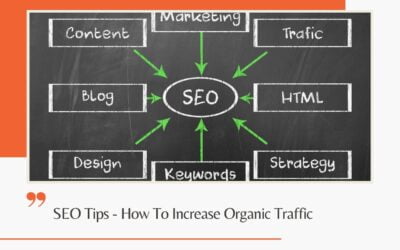Talk to any marketer, and they’ll tell you how important it is to create a full business marketing plan. They’re right, it is important. However, that doesn’t mean it’s easy to turn that plan into separate, individual marketing campaigns and draw in actual revenue.
If you want to implement the plan, then you’ll need to create a complete system for each and every initiative. Don’t just presume there’s a one size fits all marketing plan you can put together. Content marketing, lead generation, and even simple e-mail marketing campaigns all need their own plans of action.
What Is Marketing Campaign vs Marketing Plan?
A marketing plan is an overall strategy. That is, it’s a plan that’s put in place to ensure income over a period of time rather than in a specific way.
Meanwhile, a campaign is much more focused. Instead of having a general plan of action, a campaign is a focused initiative built from the ground up to achieve a specific goal.
A campaign requires a step-by-step process that calls for a pinpoint focus on execution as well as ensuring the proper resources are on hand to complete the goal. You can find some really good examples at Hubspot.
What Does A Marketing Campaign Look Like?
Marketing, in general, is something that requires care and planning. If you go in too quickly, then you’re sure to find yourself in over your head. Because a campaign is based around a specific project rather than an overall plan, it’s important to plan each step to ensure the best outcome.
Target Audience: If you don’t know who you’re trying to attract, then you have no hope of actually attracting anyone.
Discern Your KPIs And Goals: Think about what you’re trying to accomplish. Obviously, you want to turn a profit, but what does “turning a profit” look like? Beyond that, some campaigns run at a loss, but bring in profit in other ways. So make sure you know what you’re trying to do before you put the campaign into place.
What Is Your Offer: Do you know what types of incentives will get the attention of the market you’re targeting?
What Channel Will You Use: Where will your campaign ads go? What types of promotional outlets will you use?
Optimise Your Landing Page: Will people who visit your website know how to give you their money?
Nurture The Lead: What have you done to turn their attention into a desire to give you that money?
Track Results: Not every campaign is designed to turn an immediate profit. Some campaigns are designed to draw attention to other, more profitable campaigns. How have you decided to measure success?
Picking Your Target Audience
Choosing your target market is the first, and most important, step in setting up a marketing campaign.
This may seem ridiculous since most companies identify their target audience in their marketing plan. So it’s not necessary to identify them in your campaign. At least, that’s what most people think. That is not the case! Most businesses offer multiple services that branch off of their main purpose. For example, consulting companies usually offer different types of services for businesses of different sizes. Are you trying to target executives and upper management with your campaign? Or are you trying to target location and middle-managers?
When you want to reach different audiences, you’ll have to spend some time learning about their unique situations and challenges. Otherwise, it will be impossible to offer your business as a solution. What is the “persona” of the buyers you tend to find? Try to refine your products and services to match the specific needs they have, even to the point of offering them solutions to problems they didn’t need solving.
This is why a plan tends to have multiple campaigns. You’ll want to target a separate campaign for each target audience.
Set Your KPIs And Goals
Not every marketing activity is designed for the same thing. There are leads, visitors, engagement, and visibility. It’s best to focus on a primary goal for each campaign. It may be tempting to try getting all four with one campaign, but that leads to a campaign that’s too chaotic to draw in anyone.
This is why it’s so important to set Key Performance Indicators. They’ll help you figure out exactly how your campaign is doing in terms of reaching the desired outcome.
Think about leads, as one example. How many leads are you looking to generate? Is it more important to generate more leads overall, or is it okay to get fewer leads as long as they’re strong leads?
Determine Your Offer
The right offer is absolutely vital in terms of drawing in your audience. There are a number of choices. A piece of content, a free trial, the possibilities are dependent upon what your business does and what your audience wants. It’s incredibly important to learn what your audience actually wants, however. Just because you think the offer is a good one doesn’t mean your audience will respond to it. A free, hour-long webinar is only interesting to people who know of your company and are interested in what you have to teach. It may be better to offer short, simple guides as an introduction. Focus groups are great for this but don’t rely on them. People often give the answers they think they’re “supposed” to give. So make sure you get a good sense of your target audience before you put your offer into place.
Identify Your Channel
What type of media channel will you use? Different channels offer different audiences, so knowing what you want to use is almost as important as identifying your target audience. Possible media channels include, but are not limited to:
- Social Media
- Websites
- Search Engines
- Mobile Devices
- Video
Different channels are better and worse for different types of businesses.
Also, try not to get confused when looking at various channels. Many of them have similar names even though they do something different. “Social media” isn’t just one area. Facebook works differently from Twitter, which works differently from Instagram. Cable television isn’t the same as network television. The list goes on. The key to choosing the right channels is ensuring you know how to best broadcast your message. For example, if you want to send out short, simple messages to a large audience, Twitter is the place to go. Even search engine marketing is more than one thing. Search engine optimization is very different from pay-per-click, and you can’t expect one to do the same kind of work as the other.
Optimise Your Landing Page
Many companies set up their website so that visitors go to the home page. Many SEO agencies will suggest doing this, to the point of proclaiming individual landing pages to be useless.
Once again, that is not the case! When you set up a landing page, you’re ensuring visitors see what you want them to see in a format you want them to see it. Making clients search your entire website for information may make your SEO ranking look great, but it’s also a great way to frustrate potential clients. Frustration tends to make clients leave, not stay! A good landing page must:
- Build Trust
- Provide Proof
- Overcome Any Objection
- Give A Clear Call To Action
Forms, links, and options only serve to clutter the page. Having a few links to other parts of your website may help, but having a “contact us!” form may just leave them thinking they have to send an e-mail if they want any information.
Define How You Will Nurture Leads
Lead nurturing isn’t the most exciting part of a campaign. It requires patience, timing, and a lot of luck. A good lead can be the difference between making a sale and wasting time. Figuring out how to properly nurture leads can be tough. Take your time, know your audience, and be willing to educate and guide potential clients if you want to make them actual clients.
Keep Track Of Results
Obviously, it’s important to track the results of your campaign. However, many companies fail to properly determine what “good results” actually look like. If you’re asking clients to rate something from 1 to 10 and decide anything under a 9 is a failure, then you’ll have a lot of failures! Give yourself room to grow and change. Being willing to look at a “failure” as a chance to find a different audience can often lead to far more profit than you’d have ever imagined!
Tracking results can be as simple or as complex as you want, but usually, it’s based on how the business works. Measuring cost-per-lead is a common metric. However, a high cost-per-lead may not mean a waste of money if the lead turns out to be a big spending client. This is why it’s a great idea to have software to help track influence, the number of deals closed, and other such metrics.
Once the marketing campaign has reached its conclusion, then it’s time to ask yourself the following questions:
Were the goals met? If they weren’t, why?
Was your initial offer enough to satisfy your target market? If it wasn’t, then what can you offer that might?
Is there anything that should change the next time you run a similar campaign?
What did you learn about your target market that can be applied to the next campaign?
A marketing campaign launch isn’t something that can be done in a “quick and easy” manner. Every step has to be properly planned, and it’s important to consider every possible outcome. Even if the outcome seems impossible, it’s best to at least consider what might happen if it does occur. Failing to properly plan your campaign will doom your campaign, and possibly your business, to failure.
Do you need help with your campaign? Do you think to hire a digital marketing consultant? Let’s talk …





0 Comments